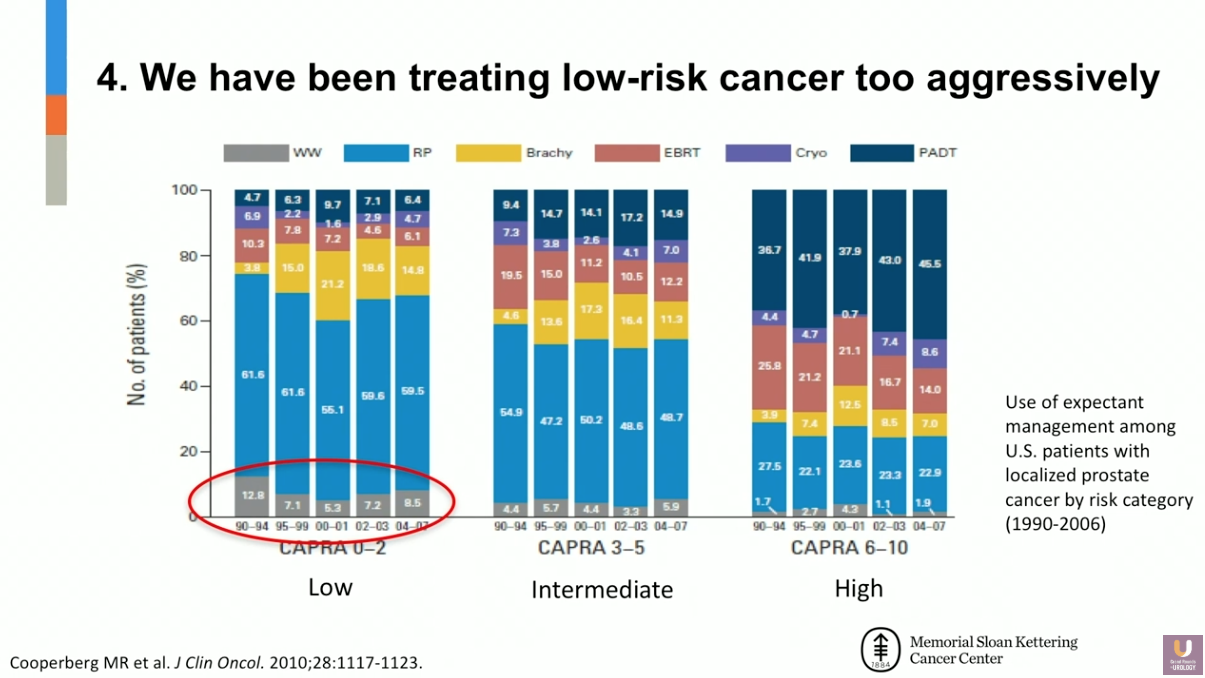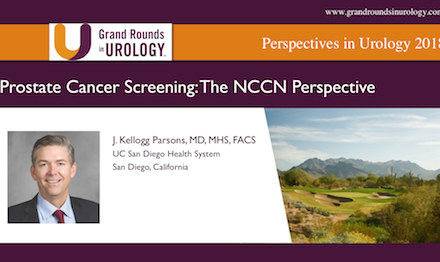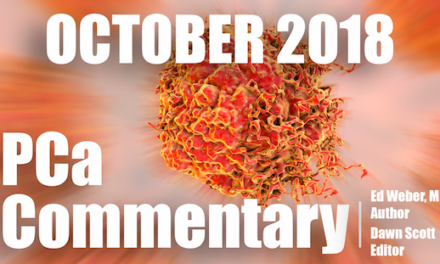Sigrid V. Carlsson, MD, PhD, MPH, presented “The USPSTF Prostate Cancer Screening Recommendation: A Swinging Pendulum” during the 27th Annual Perspectives in Urology: Point Counterpoint on November 9, 2018 in Scottsdale, Arizona.
How to cite: Carlsson, Sigrid V. “The USPSTF Prostate Cancer Screening Recommendation: A Swinging Pendulum” November 9, 2018. Accessed Nov 2024. https://dev.grandroundsinurology.com/the-uspstf-prostate-cancer-screening-recommendation-a-swinging-pendulum/
The USPSTF Prostate Cancer Screening Recommendation: A Swinging Pendulum – Summary:
Sigrid V. Carlsson, MD, PhD, MPH, reviews the history of PSA screening, from its discovery to the controversy related to United States Preventive Services Task Force (USPSTF) gradings during the current era. She also assesses the harms and benefits of PSA screening and responsible application of the PSA test.
Abstract:
Randomized controlled trials, such as the European Randomized Study of Screening for Prostate Cancer (ERSPC) and the Göteborg-1 trial, have unequivocally shown that regular prostate specific antigen (PSA) screening of men ages 50-70 reduces the risk of metastatic disease and death from prostate cancer.
Unfortunately, such screenings may lead to anxiety, false positives, unnecessary prostate biopsies, complications from biopsy, overdiagnosis, and side-effects from treatment.
This presentation reviews the historical journey of PSA screening. It outlines the past use of PSA screening, from the discovery of the PSA test during the 1980s to its dissemination between that time and 2007. In the present era (2008-2019), randomized screening trials demonstrate benefits to PSA screening, but the USPSTF guidelines have changed like a swinging pendulum. The USPSTF then updated its 2008 grade for PSA, “I” for insufficient evidence, to “D”, for recommending against PSA, in 2012. Through changes in PSA usage, biopsy, and incidence patterns, the grade shifted to “C” in 2018, for recommending shared decision-making. In the future, risk-stratified screening could be the solution for mitigating the harms of PSA screening without losing its benefits.
Further Information about USPSTF Guidelines on PSA Screening:
“The Evolution of Understanding the USPSTF: Recommendations and Controversy” by Neal D. Shore, MD
“Impact of the USPSTF Recommendations on Screening” by Gerald L. Andriole, Jr., MD
“Prostate Cancer Early Diagnosis Screening” by Guilherme Godoy, MD, MPH
“Updates on the ERSPC and the PLCO Trials” by Gerald L. Andriole, Jr., MD
“Prostate Cancer Screening: Who? Why? How?” by Gerald L. Andriole, Jr., MD
About Perspectives in Urology: Point Counterpoint
Perspectives in Urology: Point Counterpoint (PCP) is an annual CME-accredited conference devoted to discussing and debating the latest topics in men’s health, general urology, and genitourinary cancers. The conference’s format includes more than didactic lectures. It also includes debates, point-counterpoint discussion panels, and unique case-based presentations. Dr. Carlsson presented this lecture during the 27th PCP in 2018. Please visit this page in order to register for future PCP meetings.
ABOUT THE AUTHOR
Sigrid Carlsson, MD, PhD, MPH, is an Assistant Attending Epidemiologist at Memorial Sloan Kettering Cancer Center (MSKCC) with 15 years of prostate cancer research experience and over 100 publications. Her PhD thesis stemmed from the world’s largest study of prostate cancer screening, the European Randomized Study of Screening for Prostate Cancer (ERSPC), which investigated how quality of life was affected by screening and treatment. Before pursuing postdoctoral studies in urologic oncology at MSKCC, Dr. Carlsson was a physician in Sweden. She obtained an MPH degree from Harvard T.H. Chan School of Public Health.
Currently, Dr. Carlsson’s research focuses on developing risk-stratified approaches to screening, diagnosis, treatment, and follow-up of prostate cancer patients. She is also the PI of a study funded by the Patty Brisben Foundation to improve the method of asking questions about women’s sexual health. She is a co-investigator on a multi-center study funded by Movember (PI: Andrew J. Vickers, PhD) that evaluates the impact of survivorship care plans and navigation tools on patients with prostate cancer after radiotherapy. She is a co-investigator on two NIH-funded research projects, one of which investigates biomarkers and risk stratification in localized prostate cancer (PI: Hans Lilja, MD, PhD). The second project is focused on developing models to improve prostate cancer outcomes across diverse populations (PI: Ruth Etzioni, PhD).






